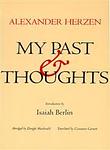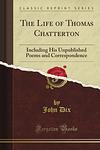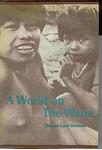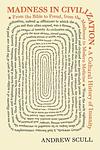The Greatest Russian, French "History" Books of All Time
Click to learn how this list is calculated.
This list represents a comprehensive and trusted collection of the greatest books. Developed through a specialized algorithm, it brings together 305 'best of' book lists to form a definitive guide to the world's most acclaimed books. For those interested in how these books are chosen, additional details can be found on the rankings page.
Genres
The category of "History" in books refers to the study and interpretation of past events, societies, and cultures. It encompasses a wide range of topics, including political, social, economic, and cultural developments, as well as the lives of individuals and groups who have shaped the course of history. History books can be written from various perspectives and may focus on specific time periods, regions, or themes. They aim to provide readers with a deeper understanding of the past and its impact on the present.
Countries
Date Range
Reading Statistics
Click the button below to see how many of these books you've read!
Download
If you're interested in downloading this list as a CSV file for use in a spreadsheet application, you can easily do so by clicking the button below. Please note that to ensure a manageable file size and faster download, the CSV will include details for only the first 500 books.
Download-
1. War and Peace by Leo Tolstoy
Set in the backdrop of the Napoleonic era, the novel presents a panorama of Russian society and its descent into the chaos of war. It follows the interconnected lives of five aristocratic families, their struggles, romances, and personal journeys through the tumultuous period of history. The narrative explores themes of love, war, and the meaning of life, as it weaves together historical events with the personal stories of its characters.
The 16th Greatest Book of All Time -
2. Democracy in America by Alexis de Tocqueville
This influential book offers an in-depth analysis of the strengths and weaknesses of 19th century American democracy. The author, a French political thinker, provides a detailed examination of the democratic process and its impact on society, politics, and the economy. The work highlights the importance of civil society, local institutions, and the spirit of equality in ensuring the stability of democracy. It also delves into the dangers of majority tyranny, the potential for democratic despotism, and the critical role of religion and morality in sustaining a democratic nation.
The 239th Greatest Book of All Time -
3. Memoirs of Hadrian by Marguerite Yourcenar
"Memoirs of Hadrian" is a historical novel that presents a fictional autobiography of the Roman Emperor Hadrian, who reigned from 117 to 138 AD. Narrated in the first person, the novel explores Hadrian's ascension to the throne, his administration, his love for the young Antinous, and his philosophical reflections on life and death. The narrative is framed as a letter to his successor, Marcus Aurelius, offering insights into the complexities of power, the nature of leadership, and the human condition.
The 307th Greatest Book of All Time -
4. Life and Fate by Vasily Grossman
"Life and Fate" is a sweeping epic that explores the human condition during the Siege of Stalingrad in World War II. The novel delves into the lives of a wide range of characters, from soldiers and scientists to children and victims of the Holocaust, providing a stark and unflinching portrayal of the horrors of war, the brutality of totalitarianism, and the resilience of the human spirit. At the same time, it also examines themes of love, loss, and the struggle for freedom and dignity in the face of overwhelming adversity.
The 437th Greatest Book of All Time -
5. Tristes Tropiques by Claude Lévi-Strauss
"Tristes Tropiques" is a blend of autobiography, travel literature, and anthropology by a renowned scholar. The book is a recounting of the author's travels and anthropological work, primarily in Brazil, in the 1930s. It provides a critical and philosophical reflection on his experiences and observations, offering insights into indigenous tribes like the Nambikwara and Tupi-Kawahib, and exploring themes of cultural change, the nature of anthropology, and the author's own disillusionment with Western civilization.
The 823rd Greatest Book of All Time -
6. Kolyma Stories by Varlam Shalamov
"Kolyma Stories" is a collection of short stories that vividly depict the harrowing experiences of prisoners in the Soviet Gulag during the Stalinist era. Written by Varlam Shalamov, a survivor of the Kolyma labor camps himself, the book offers a raw and unflinching portrayal of the inhumane conditions, extreme suffering, and moral degradation endured by the prisoners. Through his powerful and haunting narratives, Shalamov sheds light on the resilience of the human spirit and the indomitable will to survive amidst unimaginable cruelty.
The 1003rd Greatest Book of All Time -
7. Discipline and Punish by Michel Foucault
This book delves into the historical evolution of the penal system, examining how Western societies have transitioned from a regime of violent, public physical punishment to a more subtle form of surveillance and control. It introduces the concept of the "panopticon," a metaphor for modern disciplinary societies that exercise power through observation and normalization rather than through overt physical coercion. The work explores the relationship between power, knowledge, and social control, arguing that disciplinary mechanisms are embedded in various institutions, such as schools, hospitals, and prisons, shaping individuals and maintaining order in society.
The 1064th Greatest Book of All Time -
8. The Mediterranean And The Mediterranean World In The Age Of Philip Ii by Fernand Braudel
This seminal work offers a comprehensive analysis of the Mediterranean region during the 16th century, focusing on the complex social, political, and economic landscapes that defined the era of Philip II of Spain. The book transcends traditional historiography by emphasizing the geographical and ecological factors that shaped human activity, from the ebb and flow of commerce and the patterns of agrarian life to the rise and fall of empires. Through a meticulous study of the Mediterranean world, the narrative weaves together the intricate tapestry of cultures, religions, and power dynamics that characterized the period, providing a vivid portrayal of the enduring influence of the environment on the course of human history.
The 1122nd Greatest Book of All Time -
9. Émile by Jean-Jacques Rousseau
The book in question is a seminal work in the field of education and philosophy, presenting a comprehensive treatise on the nature of man and the importance of education tailored to the individual's developmental stages. The author argues for a system of education that allows for the natural development of a child's abilities and senses, advocating for learning through experience rather than traditional academic instruction. The narrative follows the growth of a fictional boy, illustrating the author's educational philosophy through his upbringing, which emphasizes moral and emotional development alongside intellectual growth. The work challenges conventional notions of education and has had a profound impact on modern educational theory.
The 1351st Greatest Book of All Time -
10. The Life Written By Himself by the Archpriest Avvakum
"The Life Written By Himself" is an autobiographical account by the Archpriest Avvakum, detailing his life as a religious figure in 17th-century Russia. The book chronicles his struggles, including his conflicts with the Russian Orthodox Church, his imprisonment, and his eventual execution. Avvakum's narrative provides a unique perspective on the religious and political climate of the time, showcasing his unwavering devotion to his faith and his unwavering determination to uphold his beliefs, even in the face of persecution.
The 1750th Greatest Book of All Time -
11. My Past And Thoughts by Aleksandr Herzen
The book is a rich and vivid memoir by a prominent Russian intellectual and revolutionary who lived through a period of profound social and political upheaval. It combines personal narrative with philosophical reflections, offering a penetrating look at the author's life experiences, from his aristocratic upbringing to his involvement in radical politics. The work delves into the author's ideological development, his relationships with key figures of his time, and his observations on the social issues and political movements that shaped the 19th century. It is a testament to the author's profound engagement with the ideas of freedom, justice, and human agency in the face of an oppressive regime and a changing world.
The 2045th Greatest Book of All Time -
12. State And Revolution by Vladimir Il’ich Lenin
This seminal political theory text delves into the role of the state in society and the necessity of proletarian revolution to dismantle the bourgeois state apparatus. It argues that the working class must seize state power, dismantle the existing state machinery, and establish a dictatorship of the proletariat as a transitional phase towards the creation of a classless, stateless society. The work critically analyzes the ideas of Marx and Engels on the state, while also addressing the practical aspects of revolution, including the suppression of the bourgeoisie by the proletariat. It serves as a theoretical foundation for understanding the dynamics of class struggle and the path towards socialism.
The 2236th Greatest Book of All Time -
13. The Memoirs of the Duke of Saint-Simon on the Reign of Louis XIV. and the Regency by Louis de Rouvroy Saint-Simon (duc de)
This book is a detailed account of the reign of Louis XIV and the Regency, as witnessed and experienced by a prominent nobleman of the time. The author offers an insider's perspective on key historical events, courtly intrigues, and the personalities of leading figures, including the king himself. His observations provide an invaluable glimpse into the politics, society, and culture of 17th and early 18th century France.
The 2291st Greatest Book of All Time -
14. The Heptameron by Marguerite de Navarre
The book is a collection of 72 short stories presented as a frame narrative, where a group of travelers, stranded by floods at a monastery in the Pyrenees, decide to entertain themselves by each telling a story every day for ten days. The tales, which were inspired by Boccaccio's "The Decameron," explore themes of love, lust, infidelity, and the complexity of human relationships, often with a moral or religious lesson embedded within them. The stories are told by characters from different social backgrounds, providing a rich tapestry of Renaissance life and offering insight into the societal norms and gender dynamics of the time. The work is notable for its candid and sympathetic portrayal of women's experiences and its subtle critique of contemporary mores.
The 2328th Greatest Book of All Time -
15. Chatterton by Alfred de Vigny
The book is a historical novel that delves into the life and tragic fate of Thomas Chatterton, an 18th-century English poet who was posthumously recognized for his talent. The narrative explores themes of artistic integrity, the struggle for recognition, and the impact of societal neglect on creative genius. Through the lens of Chatterton's short and tumultuous life, the novel examines the romantic ideal of the misunderstood and impoverished artist, ultimately providing a critique of the ways in which society both venerates and marginalizes its creators. The protagonist's passionate pursuit of literary authenticity and his eventual despair are depicted with a blend of empathy and melancholy, reflecting on the eternal conflict between the artist's inner world and the external realities of survival and acceptance.
The 2763rd Greatest Book of All Time -
16. The Peasants Of Languedoc by Emmanuel Le Roy Ladurie
This historical study delves into the social and economic conditions of rural life in the Languedoc region of France from the 15th to the 18th centuries. It examines the impact of climate, the cultivation of vineyards, and the influence of market forces on peasant life, revealing the cyclical nature of prosperity and hardship in agrarian society. The book also explores the effects of demographic changes, including the consequences of the Black Death and other epidemics, on the structure and dynamics of peasant communities. Through meticulous archival research, the work paints a detailed picture of how these farmers adapted to changing times, and how their lives were shaped by both local conditions and broader European trends.
The 3269th Greatest Book of All Time -
17. The Memoirs Of Princess Dashkova by Ekaterina Romanovna Dashkova
"The Memoirs of Princess Dashkova" is a captivating autobiography that chronicles the remarkable life of a prominent Russian noblewoman. From her privileged upbringing and close relationship with Catherine the Great to her influential role in the Russian Academy of Sciences, Dashkova's memoirs offer a unique perspective on the political and cultural landscape of 18th-century Russia. With wit, intelligence, and a strong sense of self, Dashkova's narrative sheds light on her personal triumphs, challenges, and the turbulent historical events that shaped her life.
The 3269th Greatest Book of All Time -
18. Combats Pour L'histoire by Lucien Febvre
"Combats Pour L'histoire" is a collection of essays by a prominent historian who was a key figure in developing the Annales School of historical thought. In this work, the author passionately argues for a new approach to studying history, one that moves beyond the traditional focus on political events and great men to include a broader analysis of social and economic factors, mentalities, and the structures that shape human activity over time. The book emphasizes the importance of interdisciplinary research, incorporating insights from geography, sociology, and anthropology to create a more nuanced and dynamic understanding of the past. The author's advocacy for this methodological shift has had a lasting impact on the field of history, encouraging generations of scholars to explore the complex interplay of forces that influence historical change.
The 3269th Greatest Book of All Time -
19. Notes From The Blockade by Lydia Ginzburg
"Notes From The Blockade" is a poignant memoir that provides a firsthand account of life during the Siege of Leningrad in World War II. The author, Lydia Ginzburg, vividly describes the hardships, hunger, and constant fear experienced by the city's residents, while also exploring the resilience and strength of the human spirit. Through her powerful narrative, Ginzburg offers a deeply personal and moving portrayal of survival amidst unimaginable circumstances.
The 3269th Greatest Book of All Time -
20. A World On The Wane by Claude Lévi-Strauss
The book is a reflective account of an anthropologist's journey through the Amazon Basin, documenting the lives and customs of indigenous tribes at a time when their traditional ways were increasingly threatened by the encroachment of modern civilization. Through a series of vivid observations and analyses, the author explores the complex social structures, myths, and rituals of these societies, while also contemplating the impact of Western influence on their survival. The narrative serves as both a poignant chronicle of disappearing cultures and a critique of the forces of colonialism and globalization that contribute to the erosion of human diversity and heritage.
The 3269th Greatest Book of All Time -
21. Days In The Caucasus by Banine
"Days In The Caucasus" is a captivating memoir that follows the personal journey of a young woman living in the Caucasus region during the early 20th century. The author beautifully recounts her experiences growing up in a multicultural society, filled with vivid descriptions of the diverse landscapes, traditions, and people she encounters. From her childhood adventures to her first love, the author provides an intimate glimpse into a world on the brink of change, capturing both the joys and challenges of life in the Caucasus.
The 3269th Greatest Book of All Time -
22. Memoirs Of A Revolutionist by Vera Figner
"Memoirs of a Revolutionist" is a captivating autobiography that chronicles the life of a remarkable woman, detailing her journey from a privileged upbringing to becoming a prominent figure in the Russian revolutionary movement. Through her personal experiences and reflections, the author provides a vivid account of the political and social upheaval in 19th-century Russia, shedding light on the struggles, sacrifices, and triumphs of those dedicated to the cause of revolution. This thought-provoking memoir offers valuable insights into the complexities of revolution and the indomitable spirit of those who fight for change.
The 3269th Greatest Book of All Time -
23. The Historian’s Craft by Marc Bloch
The book in question is a seminal work on the methodology of historical research and writing, exploring the nature, purpose, and challenges of history as a discipline. The author, a renowned historian, delves into the critical analysis of historical evidence, the importance of understanding the past in its own context, and the role of the historian in reconstructing history. He emphasizes the need for rigorous critical thinking and the avoidance of presentism, while also discussing the limitations and potential biases that historians must navigate. The work is both a philosophical reflection on the nature of historical knowledge and a practical guide to the craft of researching and writing history.
The 3269th Greatest Book of All Time -
24. Madness And Civilization by Michel Foucault
The book is a profound and critical exploration of the history of the treatment of the mentally ill in Western society, tracing the shifting boundaries between madness and sanity from the Middle Ages to the end of the 18th century. The author argues that the way people with mental illness were treated was a reflection of the cultural, social, and intellectual mores of the time. He examines the evolution of institutions such as asylums and the role of medical and philosophical discourse in defining and managing madness, suggesting that the treatment of the mentally ill has often been a way of exerting social control rather than a genuine effort to help those suffering. The work challenges readers to reconsider the relationship between reason, unreason, and the structures of power and knowledge.
The 3269th Greatest Book of All Time -
25. Requiem by Anna Akhmatova
"Requiem" is a powerful collection of poems that serve as a memorial to the hardships endured by the Russian people under Stalin's rule, particularly focusing on the Great Purge and the Siege of Leningrad. The author, through her deeply personal and emotive verses, gives voice to the suffering and despair of mothers, wives, and daughters who had their loved ones taken away by the regime. The poems are a testament to the resilience of the human spirit in the face of unimaginable adversity, and a poignant tribute to the countless lives lost during this dark chapter in history.
The 3453rd Greatest Book of All Time
Reading Statistics
Click the button below to see how many of these books you've read!
Download
If you're interested in downloading this list as a CSV file for use in a spreadsheet application, you can easily do so by clicking the button below. Please note that to ensure a manageable file size and faster download, the CSV will include details for only the first 500 books.
Download






















